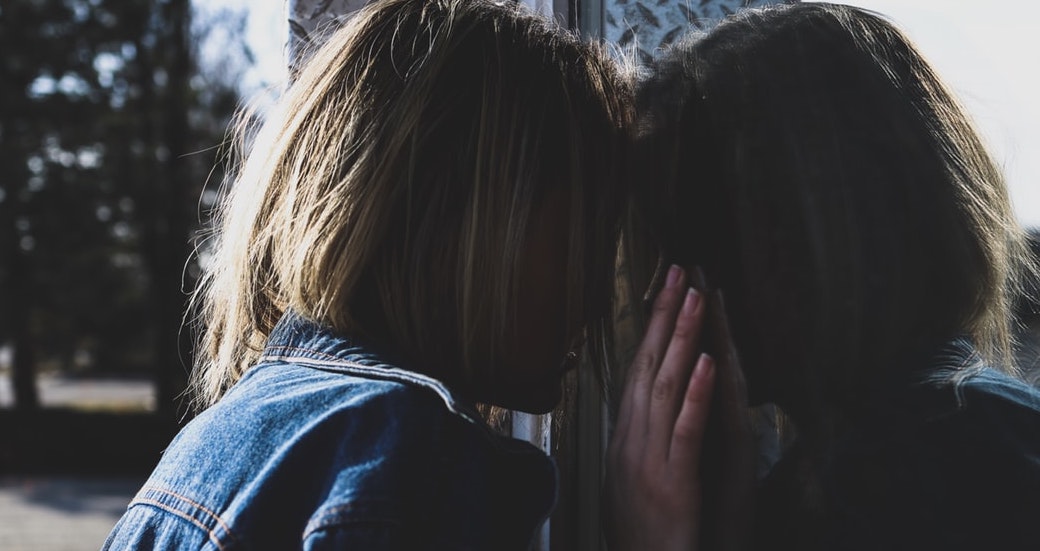When Humans Attack, Part I:
Self-Attack
There’s no shortage of motivational speakers, memes, and well-meaning people telling you to  and all good things will follow. I don’t think I’m the only person who’s been perplexed about just how to do that. How do I start? What does it look like? Why do I need to? Why don’t I already? Step-by-step instructions (with photos!) would be really useful here. Since inspirational memes rarely go into detail, we’re left to feel even worse about ourselves, because it’s not something we can just do.
and all good things will follow. I don’t think I’m the only person who’s been perplexed about just how to do that. How do I start? What does it look like? Why do I need to? Why don’t I already? Step-by-step instructions (with photos!) would be really useful here. Since inspirational memes rarely go into detail, we’re left to feel even worse about ourselves, because it’s not something we can just do.
Most of us know what it’s like to be in loving relationships with other people–and pets, of course–which might help serve as a guide. What do those relationships look like? They might entail taking care of and being kind to loved ones, verbal expressions of love, and physical affection. There are also other, more nuanced, gestures like thoughtfulness, encouragement, conflict resolution, and spending quality time together. If we need memes to remind us to love ourselves, something must be interfering with some or all of the above when it comes to this extraordinarily close relationship.
How do we not love ourselves? Let me count the ways…
A pernicious obstacle to caring for ourselves is our tendency to self-attack: All the ways in which we tell ourselves or others that we suck. But, for many of us, this kind of attack is not always apparent. How often have you chided yourself for making a mistake by saying, “Ugh, I’m so stupid”? Or, maybe you have tortured yourself with feelings of guilt for having wronged someone. Whenever you blame or shame yourself too often or for too long, you’re attacking yourself. It’s important to take responsibility and own your mistakes and wrongdoings, of course. It’s only when you’re name-calling or continually or obsessively reminding yourself of your failures or what a bad person you are that you’re not giving yourself the care you deserve. When you do these things to yourself, you’ve become your own abuser, punishing yourself for all of your failings, much like a really bad parent would.
How did we become our own worst enemies?
Although this question might go unanswered for some of us, theories as to why we’re self-attacking may help us understand how to break this bad habit.
Being abused or neglected by parents, siblings, and peers can contribute to self-blame and self-attack. Logic would dictate that being devalued in relationships with other people can leave us feeling like we’re not worth being treated with care. The little kid in us is left to wonder if she’s just a bad person or what she did wrong to deserve such mistreatment. Feeling devalued, she might express rage inward in order to protect her parents or siblings from her own rage against them, ultimately protecting herself from potential recrimination. Or she might tell herself that she’s the one who’s “bad” to protect herself from the knowledge that her loved ones are flawed and unable to care for her. Attacking oneself might also be an attempt to increase one’s value to loved ones, criticizing oneself in order to do better next time or to avoid making the same mistake. Or maybe, when we find fault with ourselves, out loud, we just want to be reassured that we are valued after all.
Are we somehow under the impression that we benefit from attacking ourselves? Well, the more we beat ourselves up for having said the wrong thing to a friend, the more we’ll remember not to say that thing again. The more we loathe ourselves for not sticking to a diet, the more likely we’ll be to stick to the diet tomorrow. The more we play the internal tape of a momentary lapse of judgment, the easier it will be to judge a situation properly in the future. And, in the end, our self-punishing ways elicit love or protect us from further abuse or eventual abandonment. Except, they don’t. You don’t need a self-inficted lickin’ in order to do better or be better; you need understanding, forgiveness, and space to be yourself in order to have the faith that you can and will be loved, no matter what.
Although it seems clear we’re born with instincts to secure love and avoid abandonment, somehow, we also seem to counter-intuitively harm ourselves in the process. All the memes and inspirational reminders in the world aren’t enough to set us on the right course (plus, they’re hokey and they oversimplify the complex inner-workings of the human psyche). Love involves kindness and kind words, affection, thoughtfulness, and encouragement. Self-love is not something you can just do; it’s closer to something that can be accomplished over time, with deliberation and intentionality.
You might also like: Artistic


